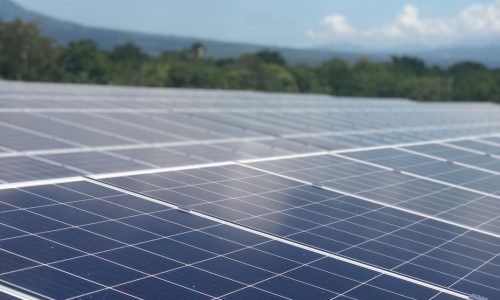The Indonesia Stock Exchange (BEI) has been granted a license to operate a carbon exchange by the Financial Services Authority (OJK). It is believed that the success of the carbon exchange in Indonesia is key to global decarbonization.
The license is based on decision letter number KEP 77/D.04/2023 issued on September 18, 2023. The letter, signed by the Head of the Capital Market Licensing Department at OJK, Luthfy Zain Fuady, states that the issuance of the operating license is effective from the date of the appointment of the Board of Commissioners.
The issuance of the license to BEI as a carbon exchange operator is in accordance with OJK Regulation (POJK) No. 14 of 2023 regarding Carbon Trading through Carbon Exchanges and OJK Circular Letter (SEOJK) No. 12/SEOJK.04/2023 concerning Procedures for Conducting Carbon Trading through Carbon Exchanges. As a result, BEI became the first company in Indonesia to receive approval to operate a carbon exchange in the country.
Mahendra Siregar, Chairman of the OJK Board of Commissioners, revealed that carbon trading through the carbon exchange in Indonesia is set to begin on Tuesday, September 26, 2023.
“The launch of the inaugural carbon exchange, where trading will take place, is scheduled for September 26, next week,” Mahendra said on September 18, 2023.
He expressed hope that all preparation processes, including the organization of activities, carbon units, various forms of registration, verification, certification, validation, and carbon trading, would support the success of the carbon exchange.
BEI has prepared four carbon exchange trading schemes in Indonesia. Jeffrey Hendrik, Director of Development at BEI, explained that investors can utilize four trading rooms on the carbon exchange. The securities traded on the carbon exchange consist of companies that have obtained carbon certificates from relevant institutions.
The first trading scheme is the regular market, where carbon trading occurs similarly to stock trading, with clients placing bids and asks. The second is the auction market, which involves one-way sales from project owners, similar to an initial public offering (IPO). The third is a negotiated market mechanism for investors with agreements outside the exchange. Finally, there is a marketplace where projects can be displayed, and buyers can submit their bids.
Success of carbon exchange key to global decarbonization with three approaches
Mahendra Siregar, Chairman of the OJK Board of Commissioners, believes that the success of the carbon exchange in Indonesia is key to global decarbonization. He explained that there is no other place in the world with the potential for emissions reduction as vast as Indonesia’s.
Therefore, before carbon trading commences, the OJK is focusing on increasing capacity in collaboration with all relevant stakeholders.
“I see and we calculate globally that if Indonesia does not succeed in taking these steps (carbon trading), we cannot be too optimistic that the world will succeed,” he said on September 18, 2023.
He also stated that Indonesia is one of the top countries that will determine whether the world can achieve significant carbon emissions reduction. “We are not a country at the bottom; instead, we are one of the top ones,” he added.
In addition to the success of the carbon exchange ecosystem through carbon exchanges, Mahendra provided three other steps that Indonesia can take to become a major player in global carbon emissions reduction.
First, he highlighted the restoration of peatlands, such as the ongoing efforts in Tanjung Jabung Timur, Jambi, to repurpose the land for agriculture.
He emphasized the need to expand such programs to various regions of Indonesia as part of the commitment to Nationally Determined Contributions (NDC).
Second, the government and stakeholders need to work together to improve the social and economic welfare of communities. Social and economic well-being is also part of the Sustainable Development Goals (SDGs).
“This is the basis of what is called the Triple Bottom Line of sustainable development: improving social welfare, economic development growth, and preserving and developing the environment, which is then an element of the green aspect,” he explained.
Third, Mahendra urged for sustainable environmental and economic policies to be implemented across all regions of Indonesia, not just in Jambi, without compromising profitability.









